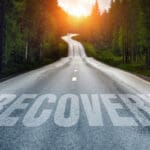To understand what a recovery community is, we can start by breaking down the phrase.
The Substance Abuse and Mental Health Services Commission (SAMHSA) defines recovery as “a process of change through which individuals improve their health and wellness, live self-directed lives, and strive to reach their full potential.” The term “recovery” is most often used in reference to addiction recovery, which includes individuals who are addicted to drugs and/or alcohol and who are engaged in the process of getting and staying clean and sober. A community typically refers to a group of people living together in one place and/or a fellowship with others, as a result of sharing common interests, attitudes, and goals.
The phrase “recovery community” can have a couple of meanings.
The first can refer to sober living facilities or halfway houses. There are many establishments across the country that are designed to house people recovering from addiction. A sober living apartment complex could also be referred to as a recovery community, since it is a community of people in recovery.
More often, though, a recovery community is a broader term, referring to a fellowship of individuals who are involved in addiction recovery. 12-step groups, such as Alcoholics Anonymous (AA), Heroin Anonymous (HA), Cocaine Anonymous (CA), Drug Addicts Anonymous (DAA), Narcotics Anonymous (NA), etc. are considered part of the recovery community. In addition, there are also recovery community organizations (RCOs). These RCOs are independent, non-profit organizations led and governed by representatives of local communities of recovery. They focus on the needs of individuals, families, and communities seeking or in recovery from alcohol and other drug addiction. Some examples of these RCOs are Face It TOGETHER and Faces & Voices of Recovery. These organizations have even extended to college campuses, with The Association of Recovery in Higher Education (ARHE) exclusively representing collegiate recovery programs (CRPs) and collegiate recovery communities (CRCs). Programs like ARHE provide the education, resources, and community connection needed to help change the trajectory of recovering students’ lives.
What is a recovery community? The simple answer is that a recovery community is a network of individuals who share the common goal of lifelong sobriety and offer support and fellowship to their peers.
References:
SAMHSA’s Working Definition of Recovery. SAMHSA. Retrieved March, 2017.










